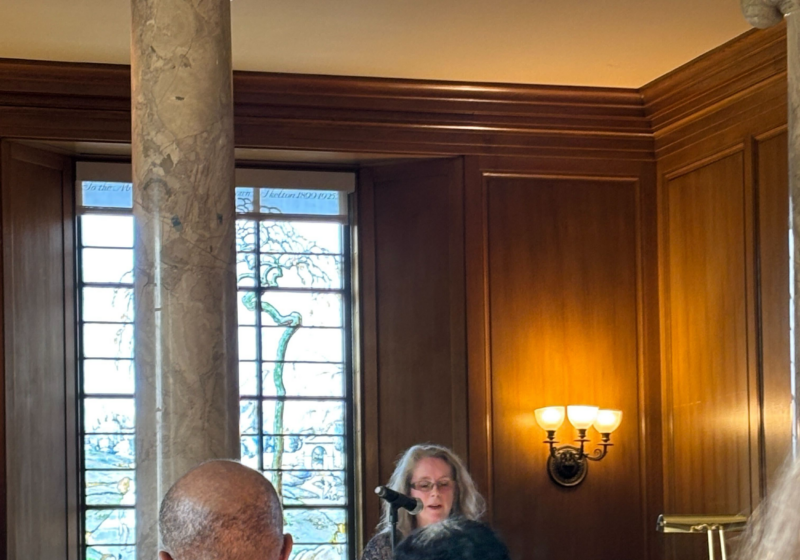In the Spring of 2017, a black student at American University had bananas hung by a noose near her room. In November of 2017, a white student tormented her black roommate for months at the University of Hartford, exposing her to bodily fluids and destroying her property. In early April at Kansas City’s Metropolitan Community College, a Muslim student was attacked on “Punish a Muslim Day.” Just this past month, a fraternity at Syracuse University was removed from campus, and its members were suspended for the release of a racist and ableist hazing video.
And this spring, blatant racism struck our own campus. A cultural and social awareness group created by black women sent out a co-sponsorship email In response, an acclaimed and successful senior replied via a private direct message that “[black people] can fuck off and go back to being slaves for all I care.”
Today, in a world of blatant racism and white supremacy, college hate crimes are on the rise. Between 2015 and 2016, the number of reported hate crimes on college campuses has increased by 25 percent. While the amount of reports may be due to the Obama-era institution of college crime reports with Title IX, this spike is extremely jarring, especially to students who belong to marginalized groups.
We have to be reminded that our own campus is no stranger to these racist and biased events. As many current upperclassmen on this campus know, in 2015, the Douglass Leadership House faced multiple physical and online attacks – including having other students urinate on their place of residence and receiving threats to specific house members via the then-popular social media platform Yik-Yak – for their presence on the Fraternity Quad.
The many resulting demonstrations and demands made by our campus’ community of color resulted in what we now know as the “We’re Better Than That” campaign. This campaign aimed to bring bias-based incidents to light and to create a more comprehensive education system for incoming first-years and enrolled upperclassmen regarding inclusivity and cultural sensitivity. This included the annual One Community program during Orientation.
This all sounds appealing on paper, but what is this program really doing? Let me break down the exact process, for example: When students come with complaints via the bias-incident report system (which is oddly done through the Burgett Intercultural Center and not the “We’re Better Than That” program), the system starts with a report that can be anonymous or not, an email to the student who committed the bias incident, and then an optional meeting set-up thereafter.
Based on personal experience, when a student files a report, they are met with a lack of follow-up and a lack of consequence for those who have committed bias-related crimes or attacks, and those who make the report have to meet with their attackers in a mediated session that the aggressor can choose whether to attend. This is the exact thread of events that occurred when the hateful statement was said by a student here on campus, and still, no consequences have been doled out, and the student has shown no legitimate remorse regarding their actions.
Last semester, instead of dealing with an impersonal report through a screen, I called the dean of students regarding the hateful spray-painted messages in the tunnels. These messages affected many students, and in my meeting with the Intercultural Center, I was even told that other students had come forward to report these messages. One statement read, “Have a better Thanksgiving that the Indians” and included a hashtag supporting Ben Shapiro — who was boycotted for appearing at another university’s event. Another read, “LBJ was a Klanner.” Both messages were shown to the Intercultural Center, a report was filed, and I was told two heavily disappointing things. That the school can’t condemn these messages because although they’re hate speech, they’re still free speech, and that I would be contacted soon (which never occurred).
It’s clear that this school uses its anti-racism programs and cultural diversity as a front to act as if hate crimes like those happening across America aren’t happening right in front of us and afflicting communities on this campus. Why is it that marginalized students have to deal with the dual stress of academics and bias- and hate-driven attacks at this university, but when they seek help via the programs the university boasts about, they don’t receive it?
This school has no problem boasting about its “ever-better diversity” and its increase in international student enrollment but it avoids the words “racism” and “hate” and instead opts for language like “bias” and tells students that we’re better than this vague concept of “that.” The administration lacks accountability and has not appropriately responded in these cases, and this is affecting marginalized students like you and I, who have to simultaneously deal with our immovable identities and the heavy load of studies all at once.
The comment directed toward me has yet to see any fruitful consequences for the student who said it, but the battle to hold the University accountable must continue. If you have faced a recent hate crime or attack on campus, please report the incident to this website.





